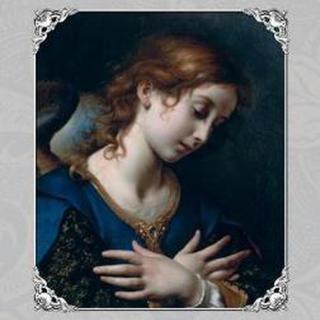
介绍:
CHAPTER VI.
REFLECTIONS OF A LANDLORD.
Again striking his head against both doors, Nekhludoff went out into the street, where the pink and the white boys were waiting for him. A few newcomers were standing with them. Among the women, of whom several had babies in their arms, was the thin woman with the baby who had the patchwork cap on its head. She held lightly in her arms the bloodless infant, who kept strangely smiling all over its wizened little face, and continually moving its crooked thumbs.
Nekhludoff knew the smile to be one of suffering. He asked who the woman was.
“It is that very Anisia I told you about,” said the elder boy.
Nekhludoff turned to Anisia.
“How do you live?” he asked. “By what means do you gain your livelihood?”
“How do I live? I go begging,” said Anisia, and began to cry.
Nekhludoff took out his pocket-book, and gave the woman a 10-rouble note. He had not had time to take two steps before another woman with a baby caught him up, then an old woman, then another young one. All of them spoke of their poverty, and asked for help. Nekhludoff gave them the 60 roubles—all in small notes—which he had with him, and, terribly sad at heart, turned home, i.e., to the foreman’s house.
The foreman met Nekhludoff with a smile, and informed him that the peasants would come to the meeting in the evening. Nekhludoff thanked him, and went straight into the garden to stroll(散步; 溜达; 闲逛) along the paths strewn over with the petals of apple-blossom and overgrown with weeds, and to think over all he had seen.
At first all was quiet, but soon Nekhludoff heard from behind the foreman’s house two angry women’s voices interrupting each other, and now and then the voice of the ever-smiling foreman. Nekhludoff listened.
“My strength’s at an end. What are you about, dragging the very cross [those baptized in the Russo-Greek Church always wear a cross round their necks] off my neck,” said an angry woman’s voice.
“But she only got in for a moment,” said another voice. “Give it her back, I tell you. Why do you torment the beast, and the children, too, who want their milk?”
“Pay, then, or work it off,” said the foreman’s voice.
Nekhludoff left the garden and entered the porch, near which stood two dishevelled(蓬乱的,不整洁的) women—one of them pregnant and evidently near her time. On one of the steps of the porch, with his hands in the pockets of his holland coat, stood the foreman. When they saw the master, the women were silent, and began arranging the kerchiefs on their heads, and the foreman took his hands out of his pockets and began to smile.
This is what had happened. From the foreman’s words, it seemed that the peasants were in the habit of letting their calves and even their cows into the meadow belonging to the estate. Two cows belonging to the families of these two women were found in the meadow, and driven into the yard. The foreman demanded from the women 30 copecks for each cow or two days’ work. The women, however, maintained that the cows had got into the meadow of their own accord; that they had no money, and asked that the cows, which had stood in the blazing sun since morning without food, piteously lowing, should be returned to them, even if it had to be on the understanding that the price should be worked off later on.
“How often have I not begged of you,” said the smiling foreman, looking back at Nekhludoff as if calling upon him to be a witness, “if you drive your cattle home at noon, that you should have an eye on them?”
“I only ran to my little one for a bit, and they got away.”
“Don’t run away when you have undertaken to watch the cows.”
“And who’s to feed the little one? You’d not give him the breast, I suppose?” said the other woman. “Now, if they had really damaged the meadow, one would not take it so much to heart; but they only strayed in a moment.”

